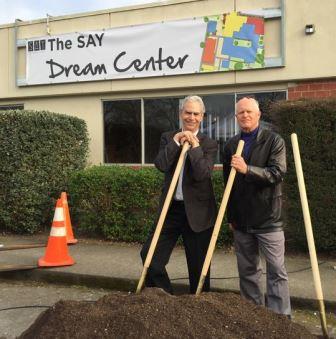Contributed by Amira (Mira) Barger, MBA,CVA,CFRE, PRG Associate – Philanthropy & DEI
“In the years I have been here, nice has not translated into upward mobility, pay equity, or new opportunities.”
We are the “nice” sector. Nice nonprofits, made up of nice people, doing nice things and putting nice into the world. I’m sorry to be the one to tell you, but “nice” simply isn’t enough. It doesn’t move us towards the change we need. There is no accountability in nice. It is not the measure.
Incremental change is nice. It is gentle and slow. But incremental change by nice people, no matter how well-intentioned, will not overcome the deliberate harm and exclusion wrought on the communities that we as a sector exist to serve – and even the harm being done within our own organizations. I am saddened, though not surprised, by the number of conversations that I have had of late regarding experiences that people are having where nice is not getting the job done. A few examples from my network across the nonprofit sector:
- My boss is nice and says nice things about me. But…In the years I have been here, nice has not translated into upward mobility, pay equity, or new opportunities.
- My advocacy group has fought for the rights of Black residents in our city and encountered opposition from nice folks who deem our efforts to be futile and divisive. They did not shout or call names, because we are a nice city. But…nice has not translated into safety for Black residents, a seat on city council, or opportunity to be in “the room where it happens”.
- I had a nice board member ask how I managed to make my way into my current role. They were nice in their tone and mannerisms, nice enough to not stir a reaction from others in the room who heard it. But…nice has not translated into action from our board on crafted DEI programs, intentional understanding of the communities we serve, or any ounce of belief that someone young, gifted and Black could have actually earned their way.
Here are some steps we can each take to work towards our organizations being more than nice – and truly accountable. I’ve borrowed some phases commonly used in design-thinking to help create a framework for us to think through and serve as guide posts:
5 Tips on How to Create Accountability
- Start with preparation As a leadership team, utilize experts in the field of DEI and Anti-racism (they are not the same!) to chart a path that reflects the goals and priorities of your organization. Put together measurable steps that address DEI as you move toward your goals.
- Discover In collaboration with your employees, your board, your partners – and with those you serve! – look at your organization from different perspectives to gather insights and seek out opportunity areas for growth.
- Define – Agree to a problem statement as a collective of stakeholders, and then work to organize your priorities. Which matters most? Which should we act on first? What is feasible short-term vs long-term? The goal here is to develop a clear direction that frames the fundamental challenges and opportunities and highlights intersections.
- Develop – Now that you’ve identified your priorities, conceptualize a solution, develop a prototype of that solution, and then test and retest continuously. DEI and Anti-racism are practices – things you do daily, over-and-over. Accept that trial and error is a necessary part of the process. It helps us to improve and refine ideas to make sure we are actually addressing the issues at hand and are moving forward to create the radical change we need.
- Deliver — As you move through this process we are working towards a resulting plan that will be finalized, produced, and launched. The plan should have clear milestones, objectives and checkpoints that keep stakeholders aware of consequences, accountable to progress and radical change.
It’s true, our sector is a nice place to work, with nice people, and we want to take steps to make sure that everyone is able to enjoy what it has to offer. Through being intentional in action and held accountable by one another, we can build a sector that ensures an equity-centric approach to our work and reflects the priority of our sector – to move and act in service to those communities most impacted by the systemic inequities in our nation.
We have the opportunity to be an example of what a sector that takes anti-racism, diversity, equity, and inclusion seriously can look like, and can be a leader in saying and showing that “nice” is not good enough.
Read our previous two blog posts (So What?) (4 Key Questions to Ask) in this three-part series on anti-racism and DEI in the nonprofit sector.
Your homework:
- Check out Dr. Shirley Davis’s free LinkedIn e-course: https://www.linkedin.com/learning/instructors/dr-shirley-davis
- Read the Woke@Work Blog: https://equityinthecenter.org/category/wokeatwork/


